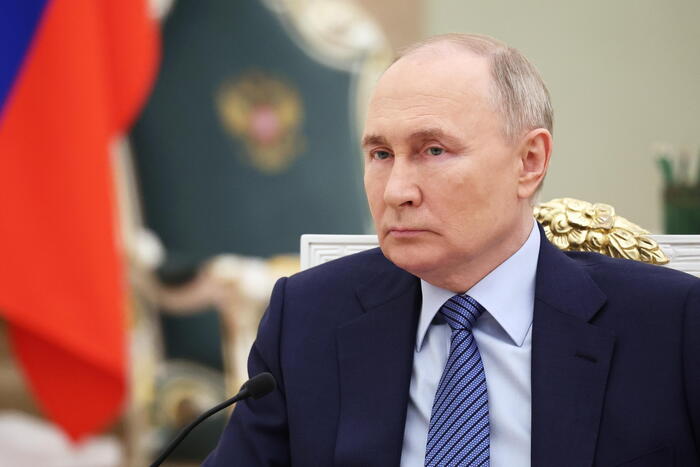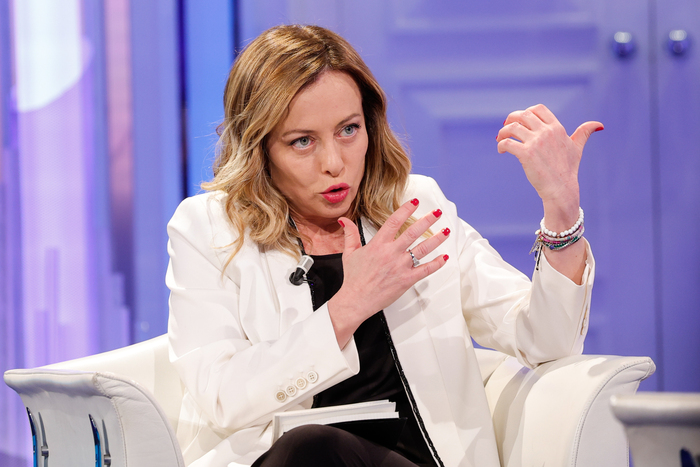Karim Benzema, during a France-Bulgaria match last Tuesday.FRANCK FIFE / AFP
From time to time, you hear that the national teams are out of date.
Indeed, the concept of nation has a historical burden in Europe, but if handled responsibly, it can create identification without causing harm.
And a competition of nations, a European championship, can reinforce the European idea through the fun of football.
The history of the Eurocup shows that sport in the broadest sense can have a unifying effect on countries.
The East and the West got to know each other better.
The first tournament in 1960, during the Cold War era, was won by the Soviet Union.
Lev Yashin, the Black Spider of Moscow, is still a well-known person today to football fans.
This prototype organizing goalkeeper has been the only goalkeeper to have had the honor of being elected European Footballer of the Year.
More information
Harry Kane claims the throne of Europe
Robert Pirès: "There are fewer and fewer different players"
Subscribe to the daily newsletter of Euro 2021
In 1976, Czechoslovakia was proclaimed European champion on the Belgrade night.
Throughout the tournament, the team defeated England, Portugal and the two World Cup finalists, Germany and the Netherlands.
Antonin Panenka became famous when he tricked Sepp Maier by poking the ball over him on penalties.
Since then, penalties by stinging the ball are named after their Prague inventor.
At the 1996 European Championship in England, as UEFA membership increased after the fall of the Iron Curtain, confident teams from new countries like Croatia and the Czech Republic played.
In the mid-2000s, UEFA followed the enlargement of the European Union (EU) to the East and awarded Euro 2012 to Poland and Ukraine.
On this occasion, for the first time the tournament will be played in 11 countries, including places where history has been made.
Glasgow, one of the birthplaces of football in the 19th century, is the only city in the world with three football stadiums that can accommodate at least 50,000 people.
Hampden Park is the oldest in the world.
Budapest, along with Vienna, was the home of joyous Danube football.
The stadium there is called Ferenc Puskás,
named European footballer of the century by the
French sports newspaper
L'Équipe
.
Attention to De Bruyne and Karim Benzema's fit in a champion France
Paradoxically, the special charm of a European Championship or a World Cup comes from the fact that the tactical level is lower than that of club football. It is simply because national coaches work less frequently with players and can exert less influence. The same thing happens in basketball or handball too. In addition, it is not possible to invest in teams, so they are heterogeneous, and some positions are not filled by specialists. For example, we Germans were world champions in 2014 with Benedikt Höwedes on the left, although he is central and also right-handed. You have to improvise with what the country offers you.
This makes the competition more diverse. There have been 10 different champions in the 15 European Championships. As the competition mode does not foresee a return match, the smaller teams have more possibilities. In a tournament, virtues such as team spirit, discipline or passion are more important. If a team manages to fit in in these few weeks, it can go a long way.
In 1988, in Germany, the Netherlands won. The enthusiasm with which it was celebrated by our small neighboring country, which had suffered from the German occupation during the Second World War, understandably had a historical-political overtone. In 1992 Red Dynamite, the lively Danish troop on vacation, won. The triumph of Greece, which duped the favorites in 2004 with Otto Rehhagel, nicknamed
Rehacles
, caused even greater sensation. In 2016, Portugal, which has produced many good footballers and coaches, but seldom wins titles for its population, took the trophy. They all performed as a set.
At Euro 2016 in France, a small island of just 350,000 inhabitants inspired the crowd.
The Icelandic team created a group dynamic and spirit that were contagious.
The fans, dressed as Vikings and goblins, in turn cheered the team with their battle cries and their Huh !, to which tens of thousands of people responded by clapping their arms raised.
That was sport in its original sense.
Most Icelanders will remember that summer for a long time.
Iceland also won the hearts of others, and some thought: "I'm going to take a look at that country, at least on the Internet."
In Germany the question is to see how the return of veterans affects the hierarchy
Croatia reached the final of the 2018 World Cup. It is a country that was reborn as independent only a few decades ago, and many of its citizens live abroad. The results of the national team reveal how Croatia wants to be represented as a country. A national tournament with an international audience is the ideal setting for this. And the same can be said of the Eurovision Song Contest, a musical competition in which, by the way, it is negotiated who belongs to Europe.
The experience of the European Championship reminds us of Asterix's books, which play on stereotypes about the British, the Swiss and the Goths. Sometimes the sense of unity becomes very strong, and then it becomes a prejudice against others. However, it is the diversity of people who are enthusiastic about football that makes the European Championship so special. And the beauty of football is that no one has to give up what their childhood and their environment have turned them into. The fact of being different is recognized, also because the same rules apply to everyone.
National teams even promote the expression of cultural achievement. That is why we see over and over again how teams play in the typical style of their country. Spaniards and Italians are greatly influenced by their football culture and league. England, as always, have many fascinating talents, but as the Premier League stars come from elsewhere, the Three Lions are often lacking in key players.
The charm of this tournament also lies in seeing the best stars of the big clubs play their part in the national team. Michel Platini, the best European footballer of his time, led France to the title in his own country in 1984. The Juventus star stood out in this competition as much as Diego Maradona in the 1986 World Cup. Platini, with the French bantamweight in the chest, he scored nine goals in five games as a midfielder. German television viewers chose his headlining goal against Yugoslavia as goal of the month.
In 2016, Real Madrid's Gareth Bale led Wales to the semi-finals. The idol Cristiano Ronaldo also contributed in his world career to help his country. Portugal ended up winning without Cristiano, who did not play in the final due to injury. Then he cheered on the team from the coaches' area. He could be seen realizing that he was benefiting from the strength of his teammates. That title made him a complete footballer.
This time you have to pay special attention to Kevin de Bruyne of Manchester City. Belgium has other good footballers like Eden Hazard, Romelu Lukaku and Thibaut Courtois. Soccer fans would like to see this team win. You can also be curious about 33-year-old forward Karim Benzema. The French won the World Cup in 2018, and were second in 2016 without him. If Didier Deschamps wants to reach an important final for the third time in a row, like Spain from 2008 to 2012, and Germany from 1972 to 1976, the French coach will have to integrate this temperamental Madrid footballer.
France is once again one of the favorites, like Italy and Spain, the other traditional footballing countries.
Or Germany, in which Joachim Löw wanted to initiate a change two years ago.
Meanwhile, he has brought back two world champions, Thomas Müller and Mats Hummels, who had been discarded.
Now the question is how that will affect the hierarchy.
The world power of covid
After Germany were soon eliminated from the 2018 World Cup, it will be important for Löw to make it clear to all players that playing for his country is a special responsibility. I've heard my anthem 113 times on the field, and it's always exciting. Money and contracts are less important in the national team than in the daily life of the clubs. More important are values such as cooperation, friendship and homeland, all things that are attributed to team sports. In a European Championship or a World Cup, history is made.
Like the football market, the number of participants has increased from four in 1960 to 16 in 1996 and 24 in 2016. This year, the Finns are going to participate for the first time.
When we consider their football culture and demographics, they are not the favorites.
They will accept that role, but not being favorites can be seen as a challenge.
The North Macedonians, who beat Germany 2-1 in March, will also make their debut.
This young republic has changed its name for political reasons, and wants to be part of NATO and the EU, something that has been denied so far.
Your participation in the Eurocup will strengthen your self-esteem.
They want to show who they are and who they want to be.
And it is not a bad motivation to have a good tournament.
The coronavirus does not participate, but it is a world power that will continue to teach us what is truly important between countries in the coming weeks: solidarity and justice.
Of course, the virus will affect this pan-European competition, and it already has, because the Dublin and Bilbao venues, unfortunately, have been ruled out.
Europe and the world remain responsible for standing up to the pandemic and ensuring everyone's safety.
Even so, it is in our hands to ensure that this European Championship is celebrated as a free and peaceful competition of countries.
Subscribe here
to our special newsletter about Euro 2021

/cloudfront-eu-central-1.images.arcpublishing.com/prisa/2O6CH772SH6D65HDVU7NPMKGYE.jpg)






